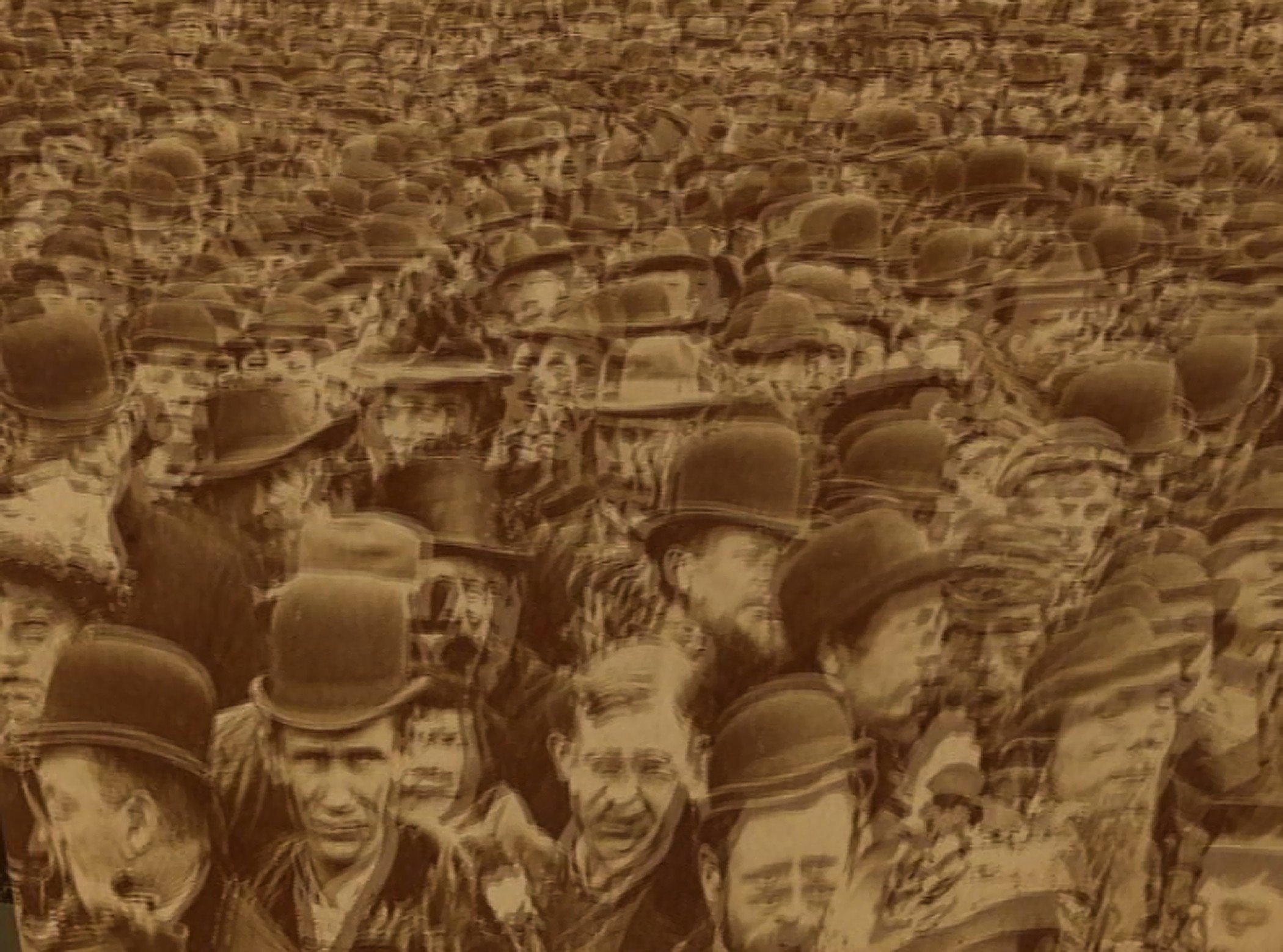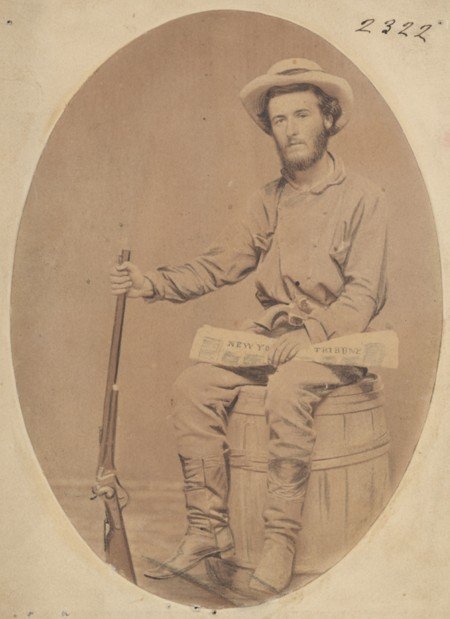
American Intifada for Gaza: What Should We Expect?
The mass protests at dozens of US universities cannot be reduced to a stifling and misleading conversation about antisemitism.
Thousands of American students across the country are not protesting, risking their own futures and very safety, because of some pathological hate for the Jewish people. They are doing so in a complete rejection of, and justifiable outrage over the mass killing carried out by the state of Israel against defenseless Palestinians in Gaza.
They are angry because the bloodbath in the Gaza Strip, starting on October 7, is fully funded and backed by the US government.
These mass protests began at the University of Columbia on April 17 before covering all of US geography, from New York to Texas and from North Carolina to California.
The protests are being compared, in terms of their nature and intensity, to the anti-war protests in the US against the Vietnam War in the 1960s and 70s.
While the comparison is apt, it is critical to note the ethnic diversity and social inclusiveness in the current protests. On many campuses, Arab, Muslim, Jewish, Black, Native American and White students are standing shoulder to shoulder with their Palestinian peers in a unified stance against the war.

The Whacky Hijinks of the Molasses Gang
In 1870 or 1871, when New York’s Five Points district was by most accounts home to one endlessly rolling gang riot (or hundreds of concurrent gang riots as the case may be), three small-timers—Blind Mahoney, Billy Morgan, and Jimmy Dunnigan,—struck an alliance to form their own gang of sneak-thieves and pickpockets.

Immaculate Contradiction: Curtis Harrington Makes the First Trans-themed Film
The public library in Beaumont, California had a policy in the mid-1930s of strictly segregating its holdings. A great, fortress-like structure set, as they often were, in the species of small, placid American city that generations of authors would, without ever setting foot in it, describe as sleepy.
But as a kind of unintentional rebuke to the small-ness, the placid-ness, if not also the American-ness, of the place, its library was stocked with the literary fruits of Modernity itself. All the big names were in evidence: Gertrude Stein, e.e. cummings, Conrad Aiken, you name 'em; even the recently liberated "One Book Ulysses." For a small town, it could be said, the library assumed much about its community. But due to their often unruly content, these treasures of the hour were, as it is with most libraries, not permitted to be lent to children.
One exception was a child named Curtis Harrington. As he would later write in his memoirs, his budding fascination with the world of adult appetite and, suggestively, its darker corners was encouraged by an unusually permissive librarian who allowed the lad, once his interest had been registered, to check out, take home, consume.

Hattie McDaniel: Fitting and Unfitting
I’ve seen Gone with the Wind (1939) many times, mostly on television, sometimes with commercials and sometimes not, and once in the theater, when it was released again in the late 1990s. The audience in that theater, when I saw the film on the big screen, was probably 80% African American. I kept watching the black members of the audience to see how they were reacting, and mainly what I saw were looks of love and pride, especially when Hattie McDaniel was on screen as Mammy, yelling at Vivien Leigh’s Scarlett and obsessing over the girl’s lack of manners. Not long after that screening, I saw a re-run of The Cosby Show where Claire Huxtable (Phylicia Rashad) cozies up with her daughter Rudy (Keshia Knight-Pulliam) on the living room couch and prepares to watch Gone with the Wind with her. Claire tells Rudy about Scarlett and Melanie, but she doesn’t say a word about Mammy or Butterfly McQueen’s Prissy.
McDaniel won the Academy Award for Best Supporting Actress for Gone with the Wind, beating out her co-star Olivia de Havilland, who played good-hearted Melanie. That award meant a lot of different things symbolically at the time, but it was earned purely on an acting level, too. Just watch the scene where Mammy tells Melanie about the calamities that have occurred since the death of Rhett (Clark Gable) and Scarlett’s daughter. It’s a Greek Chorus type of lament, and it’s a virtuoso opportunity for McDaniel, lasting over a minute without a cut as the camera follows Mammy and Melanie up the stairs. McDaniel holds this long take with as raw an expression of grief as we can possibly handle; she even stumbles over a couple of words because she’s so deeply into this woman’s ever-renewing despair. There’s a moment half-way through when Melanie asks Mammy not to tell her anymore, and I always laugh a little at this point because it seems like de Havilland herself is uneasily signaling, “Please, Hattie, stop, or you’re going to win the Oscar that I want for myself!”
This is very much an Oscar set piece, or a classic Oscar clip, a long take that shows off all the technique and all the emotion alive in McDaniel. I wonder what she thought about to get her to this point. I don’t think just imagining Mammy’s circumstances would be enough to get her as far as she goes here, because we haven’t seen anything like this depth of feeling in the character before, and we don’t see it again. This is the kind of emotional acting that feels like it must come from personal experience, and it shows what McDaniel was capable of. It makes me think that she might have played Berenice in Carson McCullers’s The Member of the Wedding, a part that Ethel Waters triumphed in on stage and on film.
Mammy is a fusser and a manager, but powerless, of course. She cares about how the O’Hara family is perceived, and there are hints in the early scenes that she doesn’t really like Scarlett, who doesn’t at all measure up to her cool, patrician mother Ellen O’Hara (Barbara O’Neil). When Mammy gets in a dig about Scarlett’s obsession with Ashley Wilkes (Leslie Howard), McDaniel lowers her eyes, as if she wants to convey that Mammy knows she’s gone too far but is tickled to have done so. “Just like a spider,” Mammy emphasizes, as she looks on helplessly while Scarlett schemes, but when Scarlett marries Rhett, Mammy leaves Tara, the O’Hara homestead, to go and serve this selfish girl in a new house. Her hair starts to grey under the kerchief on her head, but Mammy holds on tight to her outdated standards, her views of lower class whites and blacks as “trash,” her conviction that certain things “just ain’t fittin.’” Mammy is stuck in a prison-like mindset for life, as if she (or the people who wrote and imagined her) cannot imagine liberation, or a new way of life.

Feeding War, Killing Peace: Why the US Vetoed ‘Palestine’?
The outcome of the Palestine vote and the American veto at the United Nations Security Council on April 18 was predictable. Though European countries are becoming increasingly supportive of a Palestinian state, the United States is not yet ready for this commitment.
These are some of the reasons that the US deputy envoy to the UN, Robert Wood, vetoed the resolution.
One, US foreign policy in the Middle East is still governed by Israeli priorities. And since the majority of Israelis reject the idea of a Palestinian state, or any ‘concessions’ or even the most basic rights for Palestinians, the weak US president neither has the courage, nor the desire to defy the Israeli position.
Two, the fact that Israel, as per the words of its ambassador at the UN, Gilad Erdan, saw that a vote for Palestine would be equivalent to ‘rewarding terror with a Palestinian state’, created the kind of political discourse that would have made a positive American vote, or an abstention, akin to supporting this so-called terrorism.
Three, Biden, in his own Democratic Party’s calculations, cannot politically afford supporting an independent Palestine only a few months ahead of one of the most contested and decisive elections in US history.
His position remains that of supporting a strong Palestinian Authority - which only exists to ‘secure’ Israel against Palestinian Resistance - while giving the illusion that a Palestinian state is forthcoming.

The Great Houdini Goes to Hollywood
Harry Houdini began his career as a magician performing card tricks with his brother on the midway of the 1893 World’s Fair. By the early 1900s he was well on his way to becoming an international superstar by escaping from handcuffs, manacles, safes, jail cells, sealed milk cans filled with water, and straitjackets (while dangling upside down six stories above a busy street). He was an undisputed king of the vaudeville stage, drawing huge audiences and demanding top dollar. But that was only the first phase of his strange and unpredictable career.
Contrary to the general mythology, Houdini didn’t begin his investigation into spiritualist charlatans (putting him in the headlines again and giving his career a second wind) immediately after the death of his beloved mother in 1913. No, there was a ten-year lag there most people overlook. And for at least a few of those years, the world’s most famous magician and escapologist tried really, really hard to make it in the movies. He had his reasons.

Which Genocide Are You On?
Why has free speech been so triggering to academic administrators? Twitchy and undemocratic responses at Columbia and other universities — a twisted combination of police crackdowns and campus shutdowns — seem wildly disproportionate to the occasion. Young people, students, are being suspended and arrested for attempting to disrupt Israel's genocide against Palestinians.

Siding with Vinyl
This is about records you can either no longer buy or that would cost Warren Buffett’s arm and leg. Not all are LPs. A couple are lost CDs – one can’t be found under its original title and a couple have just vanished.
Michael Garrison’s Prisms comes from the early ‘80s electronic “space” music, as introduced to me by “Stars’ End,” the late-Saturday-night program on dear old WXPN, the University of Pennsylvania station back when it actually did interesting things.. Garrison wasn’t so much spacy as bouncy and loopy, hopping around the sonic room on one synthesized leg, even while reaching for the stars. A couple copies float out of the ether now and then.
For real space music of that era, there were the Nightcrawlers, a synthesizer trio from, of all places, Camden, NJ, Murder Capital USA. Two brothers named Gulch, can’t recall who the third was. I saw them at St. Mary’s church on the Penn campus, wandering around the stage twiddling knobs on various blocks of equipment to turn out hypnotic rolls and lumbering carriages of sound. My daughter Morgan gave me a tape of I guess their only album for my birthday; it’s now ensconced digitally on my iMac. Try finding them on the Internet. Unh-uh.

Ken Jacobs: 3-D is Intoxicating
First Man: Have I got a deal for you, an elephant for only $500!
Second Man: I haven’t the room, and what would I want with an elephant?
First Man: Okay, how about two for $500?
Second Man: Now you’re talking!
The fact is that the Second Man is no fool but is a 3D enthusiast and a magician of sorts.

James Redpath
Except for one booklength biography – John R. McKivigan’s scholarly Forgotten Firebrand of 2008 – the name of James Redpath has barely been kept alive today. Yet for forty years, from before the Civil War to 1890, the restless, ginger-haired Scotsman – Red to friends – was well known for an outstanding career with many surprising turns. Among other things, he helped make John Brown a saint and Mark Twain a star, and invented a national holiday.
Born in 1833, he came as a boy with his family to Michigan in the late 1840s. He was nineteen when Horace Greeley saw his writing in a Detroit paper and brought him to New York in 1852. He soon chafed at toiling in the bowels of the New York Tribune as an anonymous cub reporter. About the time that Redpath came to New York, Frederick Law Olmsted began a series of long tours of the cotton South, writing dispatches for the new New York Times. Although he’s remembered today as the co-designer of Central Park, a project that would begin in 1858, Olmsted made his first impact through these Times articles on slavery and the South, collected in several bound volumes that were widely read in the years leading up to the war.
Bored with his office job, Redpath decided to follow in Olmsted’s footsteps. He traveled extensively in the South, by foot, rail and other conveyances, beginning in 1854. Warned that Southern whites might react hostilely and even violently to the presence of a “Greeley spy” among them (Greeley was an outspoken opponent of slavery), he traveled under assumed names and mailed his dispatches to friends in the North, who relayed them to his editors at the Tribune and the National Anti-Slavery Standard, the weekly organ of the American Anti-Slavery Society. This would be standard procedure for Northern journalists in the South as relations deteriorated. In 1859 the New York abolitionist publisher A. B. Burdick would collect Redpath’s articles as The Roving Editor; or, Talks with Slaves in the Southern States.

Part Two: A Defense of Funny Glasses
Also known as stupid glasses. Not smart like sunglasses or the billions of aids to clear sight that we prop on our noses every day. Funny glasses only discriminate and separate two images thrown onto the same surface one to each eye so they can be related (by we who are gifted with two working eyes that can work together) in order to see depth. So that a flat surface reflecting light and hard put to claim any dimension at all for itself can almost magically afford us a moving picture of things in deep space. You think DaVinci would not have appreciated finding a pair of such specs in his mail? Isn’t it our loss that Eisenstein and Welles never got to work in illusionary 3D as much as we see how they press the limits of the 2D screen? They may have preferred having that limit to press on, yes, and they might have discovered who-knows-what possibility beyond. I only wish I could see what genius would do in unlimited space and for that, at present, I would leap to put on a pair of stereo specs.

Otto-Messmerism
In Jungle Bungles, Felix the Cat, first animated movie star, takes a newsreel camera to Africa to make a documentary, and ends up massacring most of the wildlife. In one memorable scene, he sucks an angry monkey into his camera, grinding him out the other end as a string of sausages, which are then fed to another hostile animal. Some kind of metaphor for the power of cinema?
Monkey sausages.
Also, most of the animals are thinly-veiled stereotyped black people.
I have a sort of perverse interest in Mickey Mouse, precisely because he’s so uninteresting. He’s just a squeaky-voiced version of the all-American hero, struggling mousefully with whatever difficulties beset him. Nothing he does is specific to any particular characteristic. At least Donald has his temper tantrums. In other words, from the very start, Mickey was more corporate logo than character.

